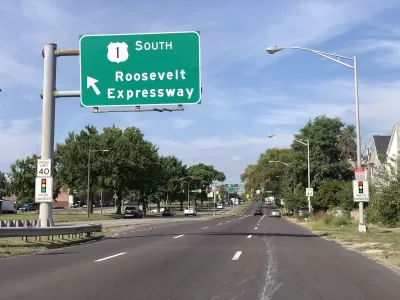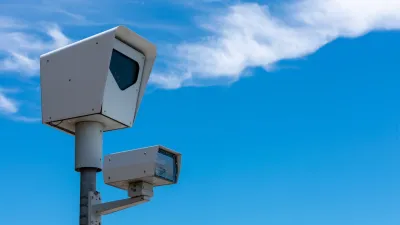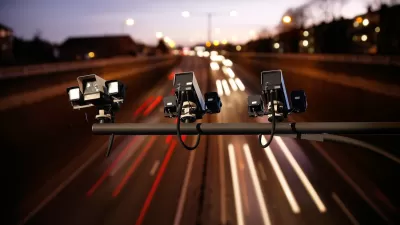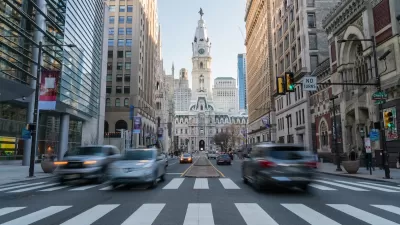Speeding violations plummeted after automated enforcement cameras were installed along Roosevelt Boulevard.

After Pennsylvania legalized speed cameras in 2018, “there was a substantial and statistically significant reduction in fatalities and crashes,” reveals a new study from the University of Pennsylvania.
As Maylin Tu explains in Next City, “Starting in June 2020, the city of Philadelphia placed cameras at eight locations and issued warnings to vehicles going 11 miles or more over the speed limit. After a 60-day grace period, speeding vehicles were fined.” The Philadelphia Parking Authority found a 90 percent reduction in speeding violations along the sections of Roosevelt Boulevard where the cameras were installed.
Speed cameras, sometimes known as automated traffic enforcement, are a controversial tool that some safety advocates say saves lives but which critics say disproportionately targets minority and low-income drivers and can be a ‘cash grab’ for cities rather than a true safety effort. “According to traffic safety advocates, it’s important for money to be reinvested directly into the community where the speed cameras are located. In the case of the pilot, the money is going to fund traffic safety projects, including $12 million to improve Roosevelt Boulevard by adding curb extensions and permeable pavement, among other upgrades.”
FULL STORY: Pennsylvania Legalized Speed Cameras. You Won’t Believe What Happened Next.

Planetizen Federal Action Tracker
A weekly monitor of how Trump’s orders and actions are impacting planners and planning in America.

Congressman Proposes Bill to Rename DC Metro “Trump Train”
The Make Autorail Great Again Act would withhold federal funding to the system until the Washington Metropolitan Area Transit Authority (WMATA), rebrands as the Washington Metropolitan Authority for Greater Access (WMAGA).

The Simple Legislative Tool Transforming Vacant Downtowns
In California, Michigan and Georgia, an easy win is bringing dollars — and delight — back to city centers.

The States Losing Rural Delivery Rooms at an Alarming Pace
In some states, as few as 9% of rural hospitals still deliver babies. As a result, rising pre-term births, no adequate pre-term care and harrowing close calls are a growing reality.

The Small South Asian Republic Going all in on EVs
Thanks to one simple policy change less than five years ago, 65% of new cars in this Himalayan country are now electric.

DC Backpedals on Bike Lane Protection, Swaps Barriers for Paint
Citing aesthetic concerns, the city is removing the concrete barriers and flexposts that once separated Arizona Avenue cyclists from motor vehicles.
Urban Design for Planners 1: Software Tools
This six-course series explores essential urban design concepts using open source software and equips planners with the tools they need to participate fully in the urban design process.
Planning for Universal Design
Learn the tools for implementing Universal Design in planning regulations.
Smith Gee Studio
City of Charlotte
City of Camden Redevelopment Agency
City of Astoria
Transportation Research & Education Center (TREC) at Portland State University
US High Speed Rail Association
City of Camden Redevelopment Agency
Municipality of Princeton (NJ)





























